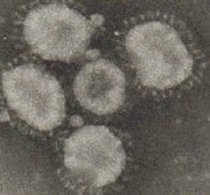Infectious Bronchitis Virus (IBV) classification
Infectious bronchitis virus has the ability to change rapidly in nature. Traditionally, IBV strains are classified into different serotypes based largely on virus-neutralisation (VN) tests in several laboratory systems. Determining the serotype of an IBV strain can be important because it is generally accepted that different serotypes do not always cross-protect.
Different IBV serotypes have been demonstrated by assays such as:
- Cross virus‐neutralization tests in embryonated chicken eggs, tracheal organ cultures and cell culture.
- Monoclonal antibodies in an antigen capture ELISA test.
Strains of IBV can also be classified based on genetic characteristics of the spike glycoprotein gene, which for the most part correlates with serotype.
Different IBV genotyping tests are:
- Reverse transcriptase/polymerase chain reaction (RT-PCR) ‐ restriction fragment length assay (RFLP).
- nucleotide sequencing.

Cross Protection Studies
Serotypes and Genotypes
Modern genetic techniques designed to determine the spike glycoprotein gene sequence of IBV strains give results very quickly for a large number of viruses. However, genotype and serotype do not always group IBV isolates in exactly the same way. Thus, it is extremely important to conduct serotyping tests such as VN testing when it is necessary to definitively determine the serotype of a new virus.
More Information
Phylogenetic tree comparing the relatedness of spike glycoprotein sequence.
Serotypes and Protectotypes
It should always be kept in mind that IBV strains with different antigenic or genetic features may still cross‐protect in vivo (in the bird). Cross-protective strains of IBV are called protectotypes.
Extensive surveys reveal many new serotypes of IBV. The most commonly known IBV serotype is the Massachusetts serotype. The Massachusetts serotype represents also the most important protectotype because it has the ability to cross-protect against a number of viruses belonging to several different serotypes or genotypes.
